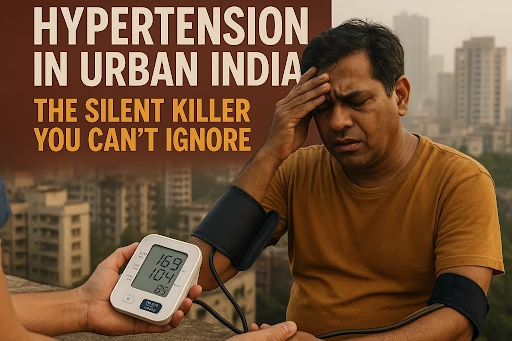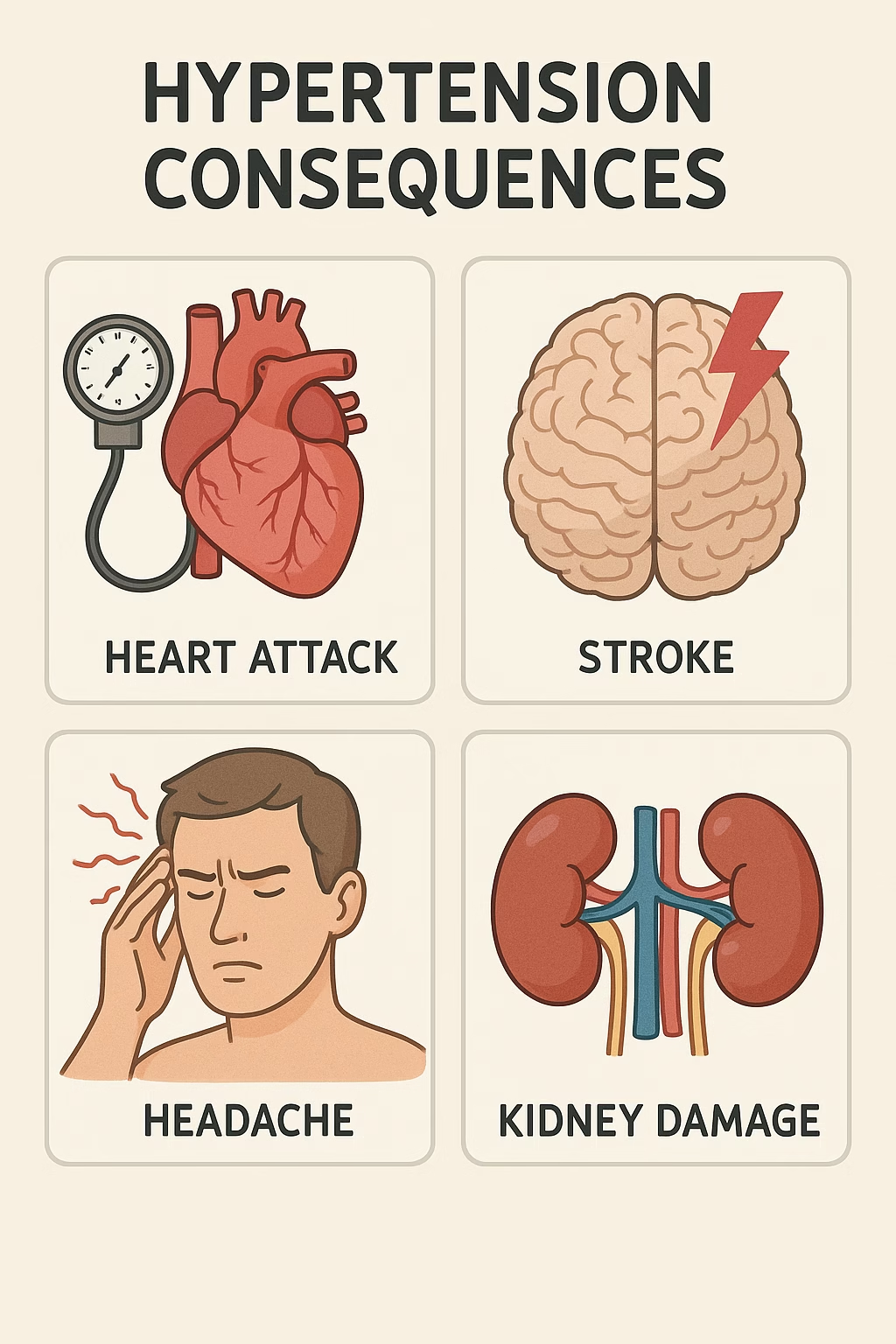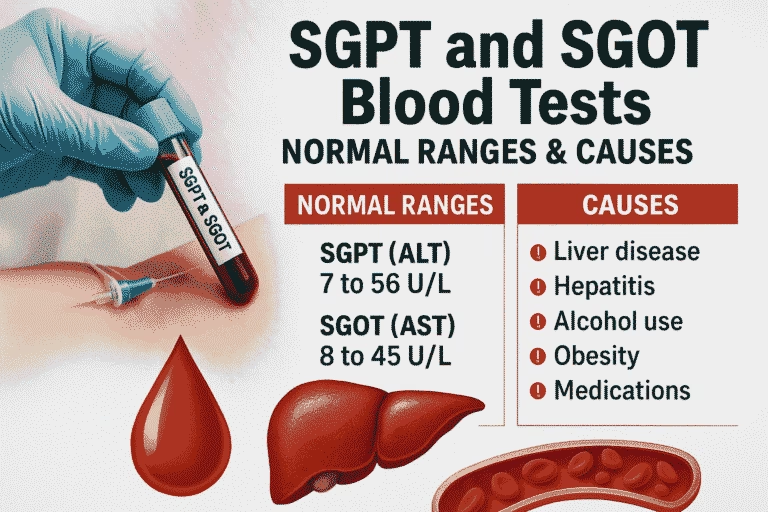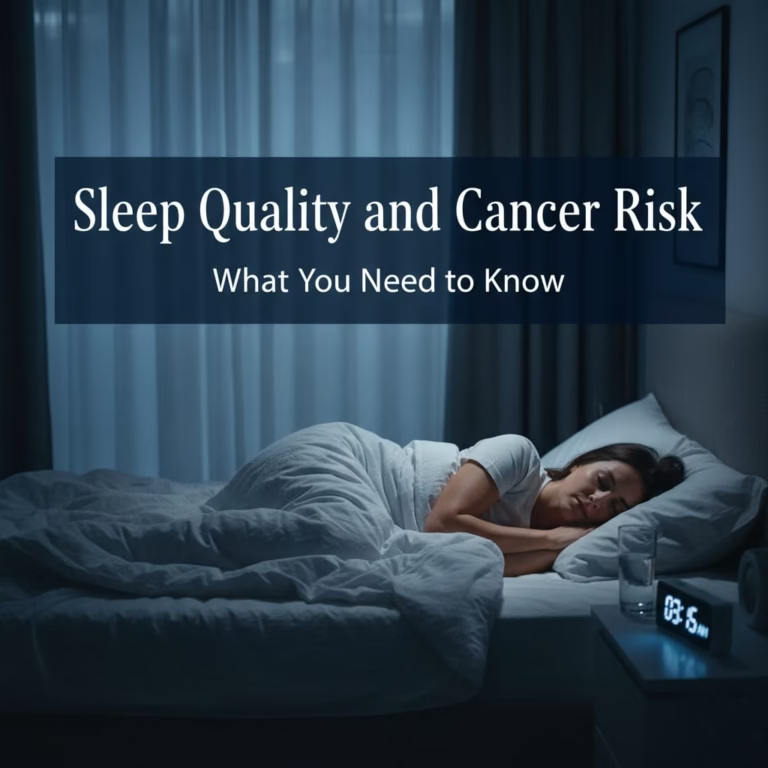
In India’s fast-paced cities, where lifestyles are hectic and stress is constant, one health problem has silently taken root and is spreading at an alarming rate: hypertension. Hypertension is a significant risk factor contributing to the high burden of cardiovascular disease and stroke, particularly in low- and middle-income nations. It can be present in apparently healthy people for years without causing symptoms, earning it the nickname “Silent Killer.”
What is Hypertension?
Blood pressure is the force exerted by circulating blood on the walls of blood vessels.
It is measured using two numbers:
- Systolic pressure (the top number): pressure when the heart pumps.
- Diastolic pressure (the bottom number): pressure when the heart relaxes.
Hypertension (high blood pressure) occurs when the pressure in your blood vessels is consistently too high (≥ 130/80 mmHg, as per international guidelines). It is very common but can be serious if not treated.
Because symptoms are often subtle or absent, hypertension is known as the “silent killer.” Most people only discover it during a checkup or after complications appear.
Untreated high blood pressure raises the risk of a heart attack, stroke, heart failure, aneurysm (dangerous blood vessel bulging/rupture), peripheral artery disease (PAD) or arterial stiffness, renal failure, poor libido, eyesight issues, and dementia.
Blood Pressure Ranges (AHA/ACC Guidelines)
| Category | Systolic (mmHg) | Diastolic (mmHg) |
| Normal | Less than 120 | Less than 80 |
| Elevated | 120–129 | Less than 80 |
| Hypertension Stage 1 | 130–139 or | 80–89 |
| Hypertension Stage 2 | ≥ 140 or | ≥ 90 |
| Hypertensive Crisis | > 180 and/or | > 120 |
Hypertensive Crisis is a medical emergency. Immediate medical attention is required to prevent organ damage.
The Burden of Hypertension in Urban India
According to recent studies, nearly 1 in 3 adults in urban India suffers from hypertension. Sedentary lifestyles, processed food consumption, irregular sleep, and growing stress levels have all been associated with high blood pressure. Compared to rural communities, urban residents are more sensitive to pollution, long working hours, and bad eating habits.
Key Risk Factors in Urban India
Risk factors associated with hypertension are modifiable ones like obesity, lifestyle, and eating habits, and non-modifiable ones like age, sex, and genetic predisposition.
- Dietary Shifts – Increased consumption of processed foods, high salt intake, sugary beverages, and fast food.
- Physical Inactivity – Desk jobs, traffic congestion, and lack of green spaces reduce daily exercise.
- Stress – Fast-paced city life, long working hours, and financial pressures elevate blood pressure.
- Obesity – More prevalent in urban areas due to caloric excess and low activity.
- Alcohol & Smoking – Common in urban social and professional environments.
- Family History – Genetic predisposition further increases risk.
- Urban Environment & Systemic Challenges- Air pollution, noise pollution, overcrowding, and limited access to affordable healthy foods, collectively strain cardiovascular health and worsen hypertension risk.
Consequences: What Happens When Hypertension is Ignored
- Increased risk of heart attack, stroke.
- Chronic kidney disease or kidney failure.
- Vision problems (damage to blood vessels in the eyes).
- Heart failure (the heart’s inability to pump effectively)
- Vascular damage that can lead to aneurysms and arterial stiffening.
- Noticeable decline in quality of life, even before life-threatening events, including persistent fatigue, frequent headaches, dizziness, shortness of breath, reduced physical stamina, and limitations in daily activities.
Tips to Prevent Hypertension
- Regular exercise: Practice frequent physical activities such as yoga, exercising, jogging, or swimming.
- Healthy Diet: Consume a healthy diet high in fruits, vegetables, whole grains, and protein-rich foods. Reduce your intake of salt, fat, and sugar.
Limit salt intake to less than 5 g/day (≈ 1 tsp).
Aim for ≥ 5 servings (400–500 g) of fruits & vegetables daily.
- Weight Management: Maintain a healthy weight by eating a balanced diet, drinking plenty of water, and exercising regularly.
- Get Adequate Sleep: Aim for 7-8 hours of quality sleep per night to lessen daily stress.
- Avoid negative habits: Quit smoking and limit your alcohol use, as both can lead to high blood pressure.
- Say no to tobacco: Avoid both cigarette smoking and chewing tobacco.
- Manage stress: Control stress by providing positive support, practicing meditation, yoga, or implementing stress-relieving techniques into your routine.
- Regular checkups: Visit your doctor for frequent health checkups and follow their advice.
Crucial Caution
Remember that receiving appropriate medical attention and making lifestyle adjustments can help prevent future hypertension-related health complications.
If your blood pressure is high, do this:
- Stop doing any activities and take adequate rest
- Drink adequate water
- Lower your salt intake
- Take conscious deep breaths and try to calm yourself down.
Re-check your blood pressure after some time. If the reading is still high, get in touch with your physician immediately. If it has lowered, continue resting and avoid the situation that triggered it.
If your blood pressure is low, do this:
- Lie down with your legs elevated. This will improve the blood flow to your brain and help with dizziness.
- Increase your liquid intake – have some lemon water, chaas, or plain water.
- If you don’t feel better in a while, consult your doctor immediately.
Warning to look out for during High BP
Never stop or skip your prescribed blood pressure medication during an episode of high or fluctuating BP, even if you feel better. Abruptly missing doses can trigger dangerous spikes or drops in blood pressure, increasing the risk of stroke, heart attack, or kidney damage. Always take your medicines exactly as directed, and consult your doctor before making any changes.
Conclusion
Hypertension doesn’t shout, it whispers. And in those whispers lies danger. In the rapidly urbanizing landscape of India, it’s more than just a medical issue — it’s a social, infrastructural, and policy challenge. But it’s not an unbeatable one. With awareness, early detection, lifestyle shifts, and systemic support, many of its consequences can be prevented or managed.
Frequently Asked Questions (FAQs)
How often should I check my blood pressure?
Adults with normal BP: once a year
People at risk: every 3–6 months
Hypertension patients: as advised by the doctor (often monthly or weekly at home)
Why is hypertension called the “silent killer”?
Since it often shows no signs until leading to severe conditions such as heart disease, stroke, or kidney damage.
Can stress really raise blood pressure?
Yes, stress triggers hormones that temporarily raise BP, and chronic stress may worsen hypertension.
Is home BP monitoring useful?
Yes. It helps track your progress and ensures that medicines/lifestyle changes are working.
What are the symptoms of high blood pressure?
Most people have no symptoms. In severe cases, they are Headaches, Dizziness, Blurred vision, and Nosebleeds.
References
- Source: National Institutes of Health (NIH) | (.gov) https://share.google/AzRvwtTXR1wyvZtJT
- Source: Lippincott https://share.google/TU4r7ADHXG7ZMa9Lo
- Source: Marengo Asia Hospitals https://share.google/wCkVCGYdHSjxDkYXl
- Source: World Health Organization (WHO) https://share.google/uokgWac3bs3fqdHaU
Discover more from The Vigyan Chronicles
Subscribe to get the latest posts sent to your email.



